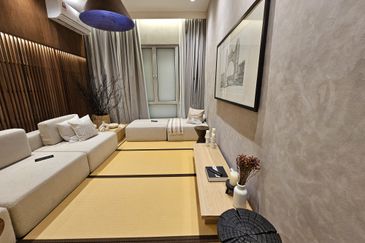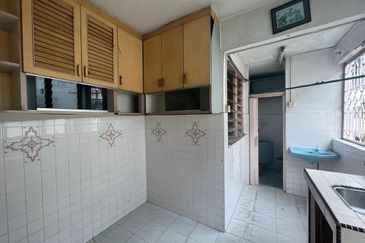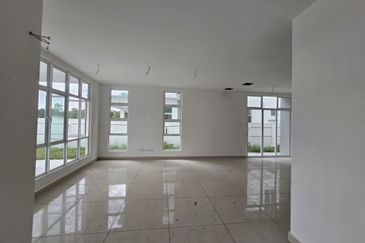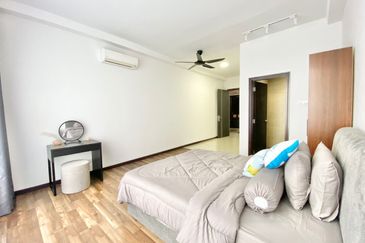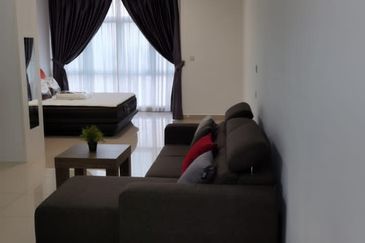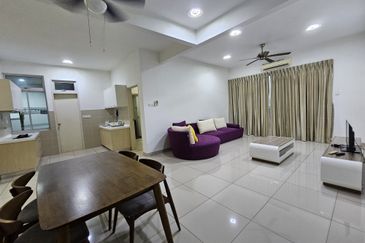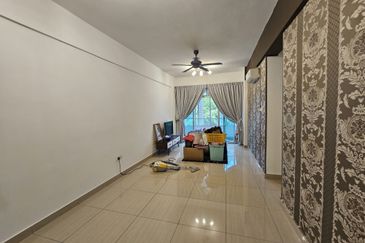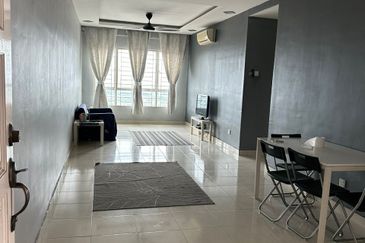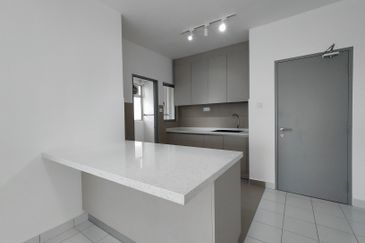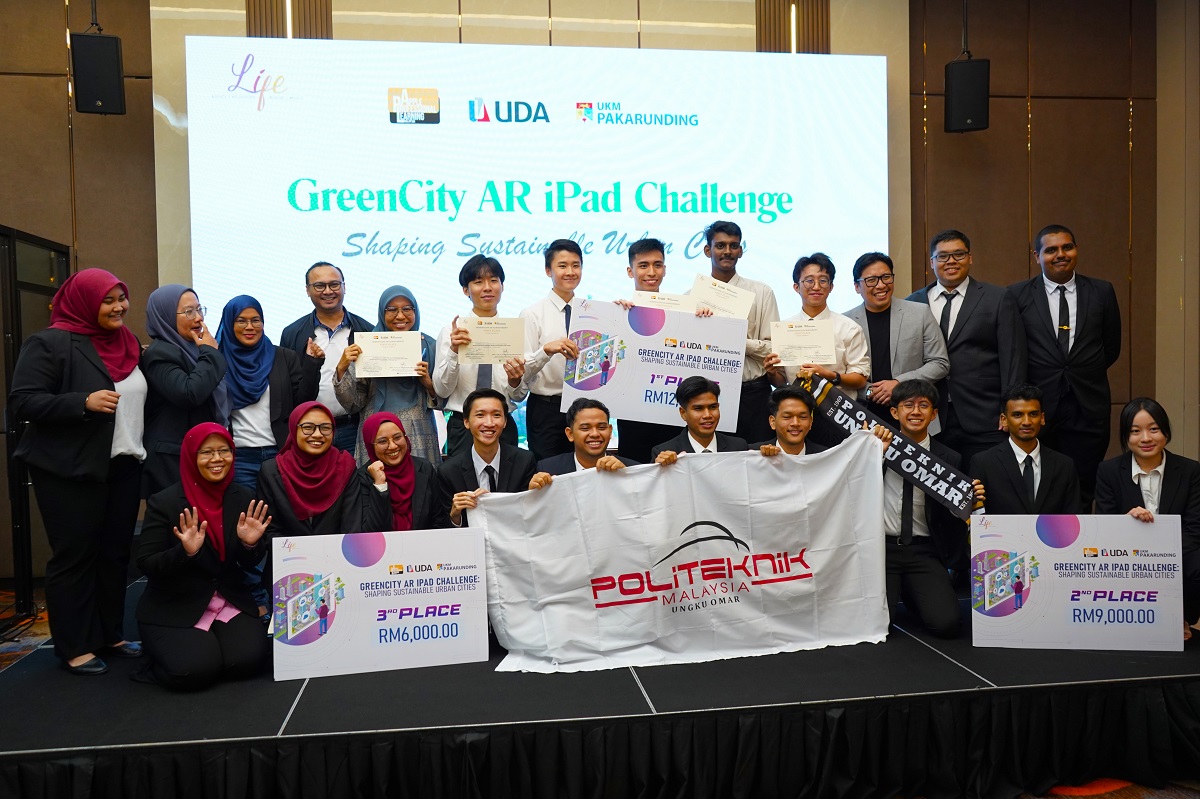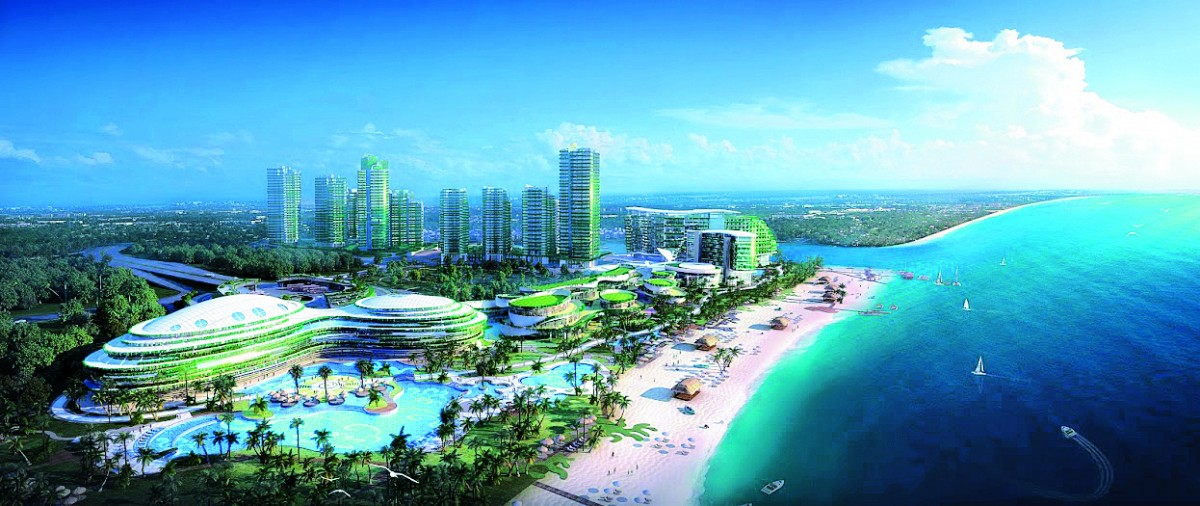 With a gross development value exceeding RM100 billion over 20 years, Forest City by Country Garden Holdings Co in Johor boasts of being the largest mixed-use green development in Southeast Asia.
With a gross development value exceeding RM100 billion over 20 years, Forest City by Country Garden Holdings Co in Johor boasts of being the largest mixed-use green development in Southeast Asia.
It is targeting international investors from the Middle East, India, Vietnam, Thailand, Japan and Taiwan, with new show galleries in these countries coming up later this year, Country Garden Pacificview tells The Edge in an email. Country Garden Pacificview is the developer’s Malaysian unit.
But the sheer scale of the project and buyer profile have led to a growing number of local property professionals wondering whether a larger problem is brewing.
Once the dust settles on the massive undertaking over four reclaimed islands spanning 3,425 acres, and after the properties have been handed over to their owners, how will the facilities in the project be maintained, they ask.
One of the biggest issues is the sheer cost of maintenance and this will depend on the owners paying their due charges. As most of the buyers appear to be investors and non-residents, industry experts point out that it is nigh on impossible to enforce local strata laws vis-à-vis maintenance charges and assessment tax if the owners are absent and cannot be located.
The Forest City project has been subdivided into separate strata titles, says Country Garden Pacificview, which is 66%-controlled by Country Garden Holdings via several subsidiaries.
The remaining 34% is controlled by Kumpulan Prasarana Rakyat Johor, Sultan Ibrahim Sultan Iskandar and Daing A Malek Daing A Rahaman.
In terms of approvals, the project is overseen by the Johor Bahru Tengah Municipal Council (MPJBT), says Country Garden Pacificview.
When asked whether the developer is looking into the potential complications, it reiterated its long-term commitment to the project and the fact that it has the backing of the Sultan of Johor. “Country Garden Pacificview has both in-house and external planning consultants, architects and legal advisers to provide advice on the strata management as well as the building planning,” says the company.
The first phase of Forest City includes a transport hub, clubhouse and man-made beach, according to its website. The development concept entails a smart city that will house about 700,000 people, with multiple levels of security system, 24-hour security patrols and comprehensive logistics management across the project.
In March last year, Prime Minister Datuk Seri Najib Razak announced special tax incentives for the project, including duty-free status for the four reclaimed islands.
Collecting maintenance charges
To understand the two layers of the potential problem, it helps to review the handover process for strata developments in Malaysia.
Twelve months after owners begin to receive their keys, the developer must convene the first annual general meeting (AGM) to set up a joint management body (JMB) that includes both the developer and owners.
The JMB is a transition body that takes over the management of the strata scheme’s facilities and maintenance account, and holds the accumulated maintenance fees.
Under the Strata Management Act (SAM) 2013, the JMB’s functions are meant to be taken over by a management corporation, comprising owners elected at another AGM. Proxies are not eligible for election. The MC is also required to meet regularly.
That presents the first level of the issue: The likely non-resident nature of most owners means that getting enough quorum for the meeting may be a challenge. Furthermore, collecting maintenance charges to sustain the facilities within the strata scheme may be a headache.
To be fair, the quorum for an MC meeting begins at two, when there are not more than four members. This means the issue may be more easily resolved by the developer.
On the maintenance charges, the counter-argument may be that since the buyers are likely affluent investors, they will be aware of their responsibilities and will meet the maintenance obligations because allowing the facilities to fall into disrepair would cause the value of the properties to depreciate.
However, the risk is that there may not be enough owners who pay regularly. While SAM contains various levels of penalties for defaulters, it will be challenging, at best, to enforce the provisions against absentee owners who are not in the country, say industry experts.
The provisions range from incurring interest on unpaid amounts to public shaming by displaying a defaulters’ list on notice boards, and even a fine of up to RM5,000 and a jail term not exceeding three years in certain scenarios.
Property observers say these are common issues at some high-rise developments across Malaysia. However, Forest City’s massive scale and mostly foreign owners will amplify these problems tremendously.
Under SAM, developers are not allowed to manage the facilities once control has been passed to the JMB.
Country Garden Pacificview did not address The Edge’s query on whether it would absorb the costs if not enough owners keep up with the maintenance payments.
Assessment tax hurdle
The likely non-resident nature of the owners may also be a problem for MPJBT as the local authority will be responsible for maintaining the facilities that are located outside the individual strata schemes in Forest City.
Strata laws provide that facilities outside the titled land area have to be adopted by the local authorities. In other words, strata property owners are not obliged to pay maintenance charges for facilities located outside their strata land title.
It is impossible to estimate how much MPJBT’s maintenance cost for Forest City will eventually be. However, industry officials say the bill is likely to be massive, given the wide area covered by the project.
In theory, the cost would be covered by MPJBT’s income from the development, namely via quit rent and assessment tax.
Last February, Johor Menteri Besar Datuk Mohamed Khaled Nordin was quoted as saying in local media that MPJBT’s income via these means is expected to hit at least RM50 million when Forest City is completed.
However, this likely presumes that MPJBT is able to serve the tax notices to the owners. If they cannot be found, the municipal council may be heading for a dead end vis-à-vis collection.
In turn, this raises the risk that MPJBT may ultimately find itself unable to properly maintain all the facilities it has to adopt under the strata law owing to lack of funds.
“If you look at the project now, it is all very beautiful. The infrastructure is massive. But in 10 to 15 years’ time, who knows what we will be looking at,” says one seniorproperty management expert.
This article first appeared in The Edge Malaysia, on April 24, 2017.
For more stories, download TheEdgeProperty.com pullout here for free.
TOP PICKS BY EDGEPROP
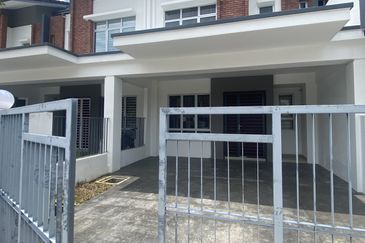
Livia @ Bandar Rimbayu
Telok Panglima Garang, Selangor
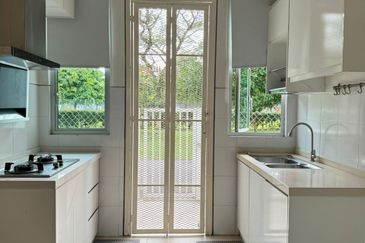
Chimes @ Bandar Rimbayu
Telok Panglima Garang, Selangor
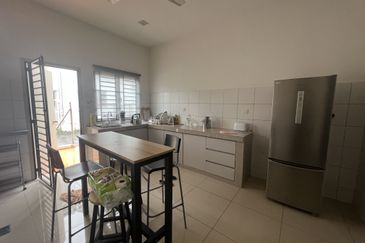
Penduline @ Bandar Rimbayu
Telok Panglima Garang, Selangor

Penduline @ Bandar Rimbayu
Telok Panglima Garang, Selangor

Robin @ Bandar Rimbayu
Telok Panglima Garang, Selangor
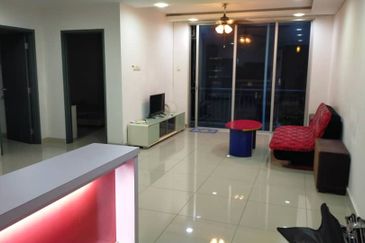
D'Ambience Residences (Ikatan Flora), Bandar Baru Permas Jaya
Permas Jaya/Senibong, Johor
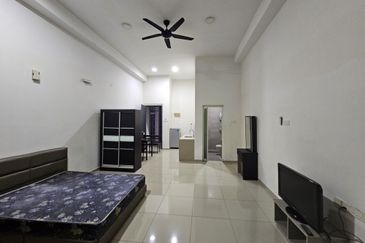
D'Carlton Seaview Residences (Seri Mega)
Masai, Johor
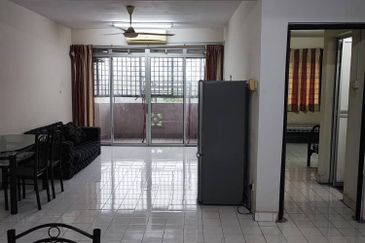
Apartment Tanjung Puteri Resort
Pasir Gudang, Johor


